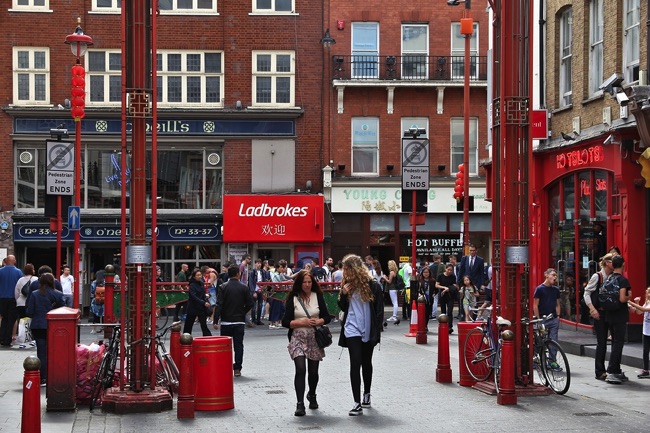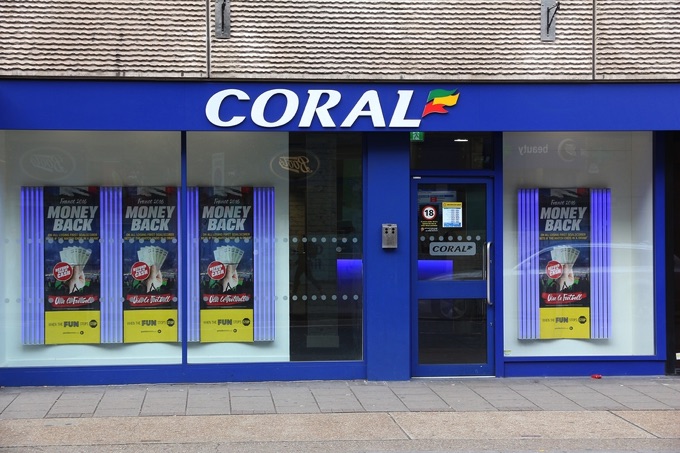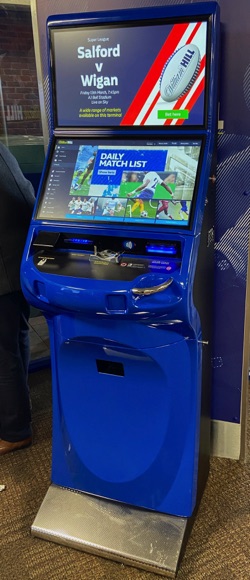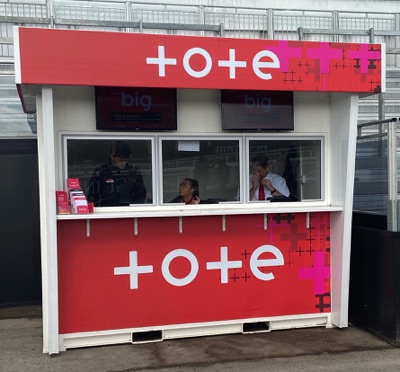This site is all about bookmakers and the best ones that you can use. In writing the various pages of the site it occurred to me that I’d never actually looked at what a bookmaker is or where they came from. Some of you will be more than aware of the answer to both of those points, but others might not. This is my attempt to have a closer look at bookies and explain the history of betting in general.
However before we get stuck in to the nitty gritty, I’m aware that some of you may just be looking for a list of recommended bookies. For those people we’ll have a brief interlude and continue in the next section.
List Of Bookmakers Reviewed on This Site
Still with me? Then let’s start with the most obvious point of all, what is a bookie? The technical definition is:
A person whose job is to take bets, calculate odds, and pay out winnings.
Now we know, of course, that that understates things a little, but it’s a good starting point when talking about bookmakers in any given context. In essence, even the most powerful and well-known of bookmakers adheres to this definition. The major difference, of course, is that we’re talking about major companies rather than just individual people. When the industry was first getting started you’d have a main person who would decide the odds of outcomes on any given events. Nowadays that is done by computers with sophisticated algorithms rather than individuals, but the outcome is much the same.
On this page we’re going to have a look at the sort of thing that a bookmaker’s job entails, including the difference between a high street and an online company. We’ll have a look at the state of bookmaking in the UK as it currently stands, as well as an exploration of the history of the profession. If you’re new to the world of betting then this is as good a place as any to start, providing you with a good over view of things so that you can better (or should that be bettor?) understand how the industry works. The reality is that you’re parting with your money when you place a bet, so having as much knowledge as possible regarding what you’re getting into can only be a good thing, in my opinion.
Being A Bookie In The UK

Tupungato / Bigstockphoto.com
There are, in essence, two types of bookmakers that you’ll come across, provided you stick to using the ones I recommend: On-Street bookies and online ones. Now you’ll also find that plenty of on-street bookmakers also have online businesses, so don’t let that confuse you. What you can do on-street and what you can do online are normally the same thing, but there are some slight differences that it’s worth drawing your attention to. A lot of that is to do with the legal side of the industry, so that’s probably the best place to start.
What’s Legal?
 The world of gambling is a broad and exciting one. There are numerous different ways that you can have a flutter, including the likes of online casino-style games, bingo, gaming machines and, of course, betting on sport. In order to offer these services, whether online or over the internet, a company needs to have a licence that has been issued by the UK Gambling Commission. Simply put, the Gambling Commission licenses any person or company that provides the ability to gamble anywhere in Great Britain.
The world of gambling is a broad and exciting one. There are numerous different ways that you can have a flutter, including the likes of online casino-style games, bingo, gaming machines and, of course, betting on sport. In order to offer these services, whether online or over the internet, a company needs to have a licence that has been issued by the UK Gambling Commission. Simply put, the Gambling Commission licenses any person or company that provides the ability to gamble anywhere in Great Britain.
There are strict rules in place for companies that wish to provide betting services, with penalties and punishments in place should a company break those rules. For example, Camelot – the National Lottery operator – was fined £3 million after a fraudulent claim was made and paid out back in 2009. As well as the main, over-riding Gambling Commission there are also Local licensing authorities who licence premises, issue permits and generally regulating gambling activities on a local level.
The legal age for most types of gambling is eighteen-years-old, though some things can be done by sixteen-year-olds. Interestingly, if you’re over the age of sixteen and not yet eighteen and are take part in gambling that is only licensed for over eighteens, you’re committing a criminal act. Something worth thinking about if you’re a teenager who thinks you won’t be in too much trouble if you get caught doing something you know you shouldn’t do! The likes of a grabbing machine at an arcade doesn’t fit into the category of being regulated, so if you won a bear in Blackpool last week then there’s no need to panic just yet.
What Do Licences Ensure?
The idea behind a licence is that companies holding one agree to certain principles. They promise that they will operate a fair and open business and will do their best to protect children and society’s most vulnerable wherever possible. An online company will be investigated by the UK Gambling Commission upon application of a licence and they UKGC will continue to monitor them after it’s been issued. If they fail in their duties at any point then they’ll have to deal with the consequences.
The Different Types Of Licence
If you’re only ever going to drive a car then there’s no point in you having a driving licence that allows you to get behind a Heavy Goods Vehicle. Likewise, if companies will only ever operate on the high street then they won’t need to get a licence that allows them to do much more than that. There are three main types of licence offered by the UK Gambling Commission, which I’ll attempted to succinctly explain as follows:
- Remote Licence – In essence, this type of licence is for companies that use technology for their services; meaning apps, websites and so on. Online bookmakers will require one of these licences.
- Non-Remote Licence – This licence type is for a company that wishes to use no technology whatsoever for their bookmaking. An on-street bookie with no website or app or the like would have this type of licence.
- Remote and Non-Remote Licence – This is the type of licence that most ‘classic’ bookmakers will now have, given that they’ll have both on-street shops and websites. It’s the all encompassing licence that allows a company to offer any kind of betting.
In actual fact there are more types of licences than I’ve listed there, but they’re variations on a theme. For example, a non-remote general betting (limited) licence would be used by an on-course bookmaker who was just a small operation, not linked to any major company and without the ability to offer online bets. You don’t really need to worry about that, but it’s the sort of thing that’s always helpful to know.
Online v On-Street

Tupungato / Bigstockphoto.com
There are numerous resources online to read about this topic, should that take your fancy, but for now I’ll offer you something of an overview about the differences between an online bookmaker and one that you’ll find on the high street. On the surface of it, of course, there’s very little difference other than vehicle you use to place your bet; after all, both offer odds, both pay out on those odds should you win and both cover all major sports and events. Yet when you dig down things aren’t quite as simple as all that. Clearly it’s easier to do certain things online, with live betting being the most obvious example I can think of.
There’s also the fact that companies that are based online can react much quicker to events as they happen than high street shops. In the time that you write your bet on a betting slip and walk up to the counter in an on-street bookmaker, an online one could have done millions of calculations to ensure you get the very best odds possible. I once placed an accumulator in a high street shop with odds of 20/1, only discover when I checked the odds of the very same bet with an online-only bookmaker that I could have got odds of 38/1. That’s a pretty remarkable difference.
That’s not to say that the odds with an online company will always be better, as they tend to fluctuate. It’s just that the advancements in technology allow companies that put you on the front-end of it allow them to ensure that their odds are as good as can be. They also allow them to make offers such as Best Odds Guaranteed that would be a lot more difficult to monitor and sort in on-street bookmakers.
High street bookmakers have their own benefits, of course. For starters they limit things such as impulse bets. If you’ve got an app on your phone that will allow you to place a bet in the time it takes you to have a wee, you may well be tempted to place wagers that you would otherwise not consider. If you have to go to the high street store to place a bet then that temptation lessens considerably. There’s also the general atmosphere and ambience of an on-street bookmaker that you won’t get by betting online. Watching a horse race with several other people in a shop is about the only thing that comes close to feeling like watching it live at the track.
Plenty of bookies offer both online and in-store operations nowadays, of course. There is often plenty of crossover between these ways of betting, too. You can often deposit money in a high street shop and use it online. Equally, you can withdraw your winnings in a high street shop in some instances, or place bets in the shop and then add them to your online account. In short, if you enjoy having a flutter and quite like doing it both on your computer or mobile and in person then a high street chain with an excellent online presence will allow you to do what you want.
Fixed Odds Betting
 A Fixed Odds Betting Terminal, or FOBT to use the industry acronym, is a device that you’ll find located inside many high street bookmaking shops. As the name suggests, they let you bet on the outcome of things that have fixed odds. One of the best examples of such a game or event would be roulette, with players knowing exactly how much money they’re likely to win depending on where the ball lands on the wheel. The least that a punter can bet on roulette is £1 and the most that can be won is £500. This means that a bet cannot be placed if it would result in a higher payout. On some FOBTs the lowest amount wagered can be as little as just five pence.
A Fixed Odds Betting Terminal, or FOBT to use the industry acronym, is a device that you’ll find located inside many high street bookmaking shops. As the name suggests, they let you bet on the outcome of things that have fixed odds. One of the best examples of such a game or event would be roulette, with players knowing exactly how much money they’re likely to win depending on where the ball lands on the wheel. The least that a punter can bet on roulette is £1 and the most that can be won is £500. This means that a bet cannot be placed if it would result in a higher payout. On some FOBTs the lowest amount wagered can be as little as just five pence.
It’s not just roulette that captures the imagination of FOBT users, with simulated horse and greyhound racing also being common, as well as the likes of bingo and slot games. The reason I’m mentioned them is that they have come under criticism since their introduction to shops in 2001. Dubbed the ‘crack cocaine’ of gambling, it is suggested that they can be extremely addictive to their users and that the ‘edge’ is higher than traditional bookmaking offerings. Bookies can have a maximum of four machines in their shops, including the more traditional style slot machine. They mostly favour FOBTs, however, because of the edge and the more modern nature of the game play.
FOBTs are designated into one of Category B2, Category B3 or Category C depending on their content. The category also determines the maximum stake that a player can wager and the maximum payout that the machine can give. The criticisms levelled at the machines led the Association of British Bookmakers to introduce the ability for players to limit the amount of time they spend on FOBTs as well as limit the amount of money they spend on them. Even so, there are continued calls to reduce their maximum spin value, with many believing that £2 would be far more suitable than £100.
History of Bookmaking

In some form or another, gambling has existed as a pastime for as long as man has been able to communicate and place two pieces of meat down to bet on which fly would take off from the floor first. Yet the act of being able to enter a betting shop to have a flutter wasn’t possible until the Betting and Gaming Act of 1960 decreed that betting shops would be allowed to open for business on the 1st of May 1961. Within just half a year around 10,000 of them had opened up around the UK, allowing punters desperate for the ability to place a bet to do so whilst they were on their way to the butchers or the chemist.
As I say, though, gambling as an activity goes back a lot further than that. In fact, a ‘national lottery’ was run as early as 1569 when Queen Elizabeth I authorised one in order to raise tax revenue. It was during the industrial revolution that gambling on horses began to take off, particularly amongst the richer members of society. In the 1800s fears over the immoral nature of gambling led to calls for commercialised gambling to be banned. The Gaming Act of 1845 and the Betting Act of 1853 effectively did just that, with the only betting still allowed being on race courses. Because attending a race meeting was such an expensive affair, these acts basically punished the poor for wanting to have a flutter but allowed the reach to continue to do so.
In 1906 the Street Betting Act was introduced with the intention of limiting virtually all forms of non-racecourse based gambling. In reality this was almost impossible to police and completely failed to reduce illicit gambling or other forms of crime. Royal Commissions on betting and on lotteries were established in the early part of the 20th century and these would eventually lead to a reform in the way gambling was regulated in the UK. After all, if people were going to do it anyway then wasn’t it best that the government find a way to allow it to increase their tax revenues? If it was good enough for Queen Elizabeth I then it should be good enough for the British government in the early 1900s.
It was the 1960 Betting and Gaming Act that gave bookmakers an air of respectability back. The no longer had to be covert operations, keeping things hidden from the authorities and doing their best to avoid criminal prosecution. Even so, setting up an on-street bookmaking shop required a capital investment that not all of the illegal bookmakers had available to them. Even some of the best known bookies, such as William Hill whose business had been going since 1934, chose not to enter the world of high street bookmaking until it became clear that to avoid it forever would be folly.
A slight amount of respectability there might well have been, but it would be untrue to say that bookmakers were welcomed onto the high street with open arms. They were allowed to open on the proviso that they have shuttered or blacked-out windows and didn’t offer any sort of enticement to people to enter them. This was an attempt to stop young people from finding them alluring, though I dare say that the opposite effect was almost certainly achieved. It meant that bookmaker’s shops appeared to be almost seedy in appearance, akin to something more like a sex shop than a newsagents. Believe it or not, it wasn’t until 1986 that any of that changed, at which point bookies could offer comfortable seating, better lighting and televisions.
Harry Ogden
It’s only right to give a quick shout out to Harry Ogden here, the main most commonly believed to have been the first ever bookmaker. Ogden, from Lancaster, realised that people who watched horse racing might also fancy having a flutter on it. He decided to set up a pitch close enough to Newmarket racecourse to mean that people could see the racing, but far enough away to stop him from getting in trouble. Ogden is believed to be the first person to give different odds on horses depending on their ability, as well as building in a margin for himself. There may have been others doing similar things, obviously, but it’s Harry Ogden who will forever be remembered as the main who started the bookmaking industry.
The Tote
 There is no clearer sign of how betting was considered to be ok for the aristocracy but not for the working classes than the advent of the Tote. The once government-owned bookmaker was actually formed in 1928 thanks to the Racecourse Betting Act and the first race with Tote betting took place the following year; all well before those unable to afford to attend a horse race meeting could bet on the high street. That was because the Horserace Totalisator Board was an easy thing to monitor, meaning that the government could ensure it was all run fairly and, most importantly of all, that it could get its share of the betting action via taxes.
There is no clearer sign of how betting was considered to be ok for the aristocracy but not for the working classes than the advent of the Tote. The once government-owned bookmaker was actually formed in 1928 thanks to the Racecourse Betting Act and the first race with Tote betting took place the following year; all well before those unable to afford to attend a horse race meeting could bet on the high street. That was because the Horserace Totalisator Board was an easy thing to monitor, meaning that the government could ensure it was all run fairly and, most importantly of all, that it could get its share of the betting action via taxes.
Betting on horse racing had, as I’ve already hinted at, taken place well before the 1928 act made it legal. We know that the Romans, for example, would often bet on chariot races. Private bookmakers offered odds on horse racing during the 19th century, in spite of the illegality of doing so. Yet it was the Tote that really saw on-course bookmaking take off, with pool betting seen as a fair and interesting way of doing things. Even when the 1960 act allowed on-street shops, the Tote was limited to shops that allowed punters to make horse racing bets at Tote odds and nothing more. That restriction didn’t change until 1972 and a Tote bookmaker came about the following year.
Though privatisation of the Tote was first mooted at the end of the 1980s, it wasn’t until 2009 that plans to sell it were officially announced. Initially there were eighteen bidders for it, yet it was Betfred that won the rights to the Tote in 2011 for a rumoured £265 million. Would the government have made more than that via the continued taxation that would have come its way courtesy of continuing to own and run the Tote? Possibly, though of course there’s no way of knowing. When it came to gambling, it wasn’t the selling of the Tote that cost the government the most money in the modern era…
Advent of Online Betting Sites
Despite the general feeling that online betting is a relatively recent phenomenon, it’s actually been around since the middle of the 1990s. Betting online started with casinos and the success of their online operation meant that bookmakers soon began to take interest. A company called Intertops is widely believed to have taken the first ever bet made over the internet back in 1996. After that sites began to spring up slowly but surely, with around a hundred or so having got going by 1998. Big UK bookmakers that were well-known on the high street, such as William Hill and Ladbrokes, were cautious to begin with. In fact, by 2000 only around 1% of all gambling was being done online.
Sufficed to say, of course, that things have picked up a bit since then. The proliferation of online bookmakers after the turn of the millennium led to the government believing that an overhaul of the industry was necessary. That was when the 2005 Gambling Act was introduced with an aim to offer some sort of regulation to this new part of the industry. The UK Gambling Commission was formed, too, meaning that bookmakers need to have a license in order to offer bets to people living in the UK. It wasn’t a perfect act, with numerous loopholes that less scrupulous people took advantage of. These loopholes were closed off courtesy of the 2014 Gambling Bill, which made amendments to the original act.
The Future

There’s no way of knowing the direction that bookmaking will take in the future. As the technology advances, so too will the way that bookmakers use it. Is it totally out of the realms of the possible to imagine watching a horse race whilst wearing a pair of virtual reality goggles, speaking your bet into an attached microphone? Some bookies might have been suspicious of new ways of betting, whether that be William Hill refusing to open high street shops until 1966 or most of the big boys waiting until the year 2000 to start online betting, but eventually they all catch up and get involved.
There’s one thing that I can say with some degree of certainty: high street bookies aren’t going anywhere any time soon. Online betting has been available for over twenty years now and yet the likes of Coral, Ladbrokes and Betfred still have thousands of on-street shops each. Even when the government made them operate with blacked out windows and nothing alluring about them whatsoever, people still liked to go in to place a bet. There’s something about having a flutter in person that remains appealing, even if the convenience of betting online might make it become a less frequent activity.

